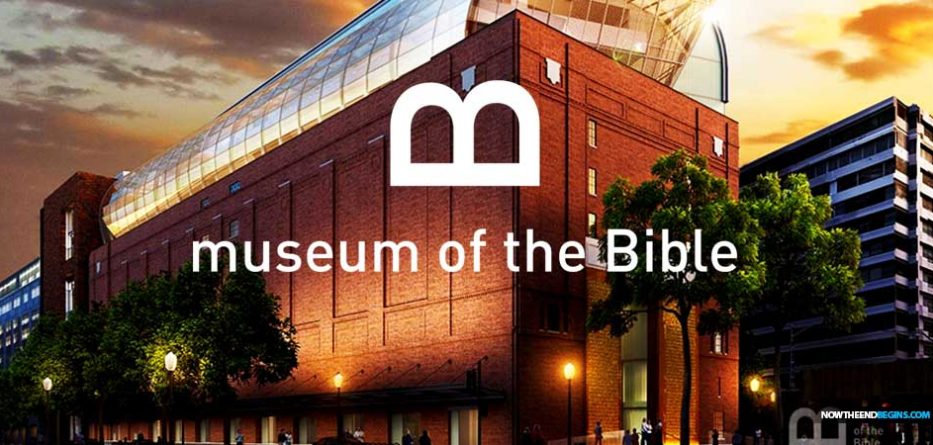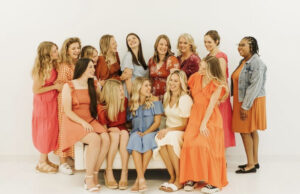Amidst claims of a narrow focus on American Protestantism, omitting parts of the Bible’s history and ignoring certain religions with ties to the text, the Museum of the Bible opened in a cloud of controversy in Washington D.C. Nov. 17, becoming the largest privately funded museum in the nation’s capital.
Largely funded by Hobby Lobby owner and evangelical billionaire Steve Green of Oklahoma City, OK, critics of the museum say the nearly $500 million endeavor only represents the Judeo-Christian perspective of the Bible, while omitting religions such as Islam, who also draw from the sacred text.
“We honored the Green’s at our last Associate’s Gala,” Oklahoma Christian University Director of Advancement Operations Will Blanchard said. “OC has partnered with the Museum of the Bible in the last few years to host an exhibit on the story and history of the Bible. It had a number of older manuscripts in our art gallery. We’ve enjoyed partnering with them and having them as champions of faith-based causes and faith-based education.”
According to the New York Times, the museum houses more than 500 biblical artifacts and texts in the 430,000-square-foot building, as well as the world’s largest private collection of retired Torah scrolls. Fragments of the Dead Sea Scrolls and a Bible brought on the Mayflower are amongst the Christian and Hebrew biblical artifacts, while the museum also features “exhibits on the Bible’s influence on society, including media, fashion and events in American and world history.”
“I am deeply impressed by [the Greens],” Blanchard said. “They’ve got a multimillion dollar company that is openly Christian and they use so much of what they learn to advance the cause of the kingdom. I think that is a very powerful message and what they are doing with the Museum of the Bible is really neat. The design of the museum is not sectarian—they aren’t preaching from that venue—it’s about the history of the Book and the impact of the Word.”
According to USA Today, the museum also includes a 30-minute, walk-through of the Old Testament, with the narrative expedition taking groups of 30 through the exhibit of lights and holograph images. The New Testament is condensed into a 12-minute film, while other exhibits include stories of scientists like Isaac Newton and Galileo Galilei, modern influences of the Bible and how the Bible has been part of past and present cultural developments.
Not everyone is pleased with the outcome of the museum, however, despite being advised by more than 100 biblical scholars to “steer clear of favoring any religion or appearing partisan.” According to Joel Baden, a professor of the Hebrew Bible at Yale University and author of “Bible Nation,” which centers on Hobby Lobby and its investment in Christian projects, important parts of the Bible’s history have been omitted from the museum’s exhibits, as well as a lack of representation of other religions, including Mormonism and Islam.
“They don’t do a good job of talking about whether parts of the Bible are historically accurate,” Baden said. “There are a number of prominent omissions that make it clear that it’s not a museum of the Bible as one might imagine it from a secular perspective.”
Some such secular groups have opposed the museum, according to the New York Times, for fear that its main mission is “politically motivated.” These claims were made after a gala was hosted by the museum Nov. 15 at Trump International Hotel in Washington D.C. and attended by Eric and Lara Trump, as well as Education Secretary Betsy DeVos.
“I think [the Bible is] foundational to our government,” Green said during a preview of the museum before the dedication ceremony. “There are many principles this nation was built on that many people today may not even understand that connection. Our freedoms, our economic system, our political system, many of those were built and influenced from the Bible and many people may not know that and we want people to understand that. None of us have this book figured out. We will never fully delve into the depths into this book, and that’s an amazing thing.”
While the museum is free for visitors, Green said donations are encouraged and he hopes people of any faith, even atheism, feel welcome at the museum.
“Whether you come from any kind of faith background or no faith background, you can experience this as an important part in human history,” Blanchard said. “No one can deny that the Bible has been an import part of human history, but to have such a prominent and sophisticated museum right in the heart of the nation’s capital, it’s a really phenomenal investment by that family. I know they poured a lot into it so it is exciting.”















Be First to Comment